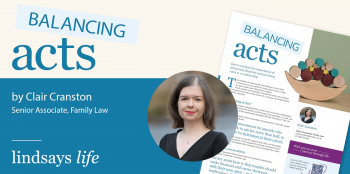One of the concerns when a relationship breaks down can be deciding on the care arrangements for the children involved. The issues surrounding this may be compounded if one of the parents is not a UK resident.
When both parents remain on amicable terms, in spite of the relationship breakdown, the couple may reach an agreement about where the children should live and when they should have contact with the non-resident parent. If the parents cannot agree, they may try other methods of dispute resolution such as mediation. In a small number of cases, where no agreement is possible, an action may be raised at court, with the court being asked to make a decision about what the arrangements should be.
A situation that we see more frequently is where the separating parents in question have different nationalities, and one parent wishes to return to their country of origin, with the child or children of the relationship in tow. If they do go with the children, without permission from either the other parent or an order from the court, the parent who is ‘left behind’ can make an application to the court under the current legislation to seek the return of their child or children.
The Hague Convention provides the mechanism for parents seeking the return of their children from another Treaty party country (the so-called ‘contracting states’). The contracting states have agreed that if a child, who was habitually resident in one contracting state has been wrongfully removed or retained in another contracting state, the child shall be returned to their country of habitual residence. Once the child is returned, any dispute over the child’s living arrangements can be addressed by the courts of that jurisdiction. There are only a very limited number of defences to a return being ordered.
More information on the Hague Convention can be found here.
Lindsays’ Family Law team has particular expertise in this area and is well placed to offer you advice on how to proceed should this situation arise.









